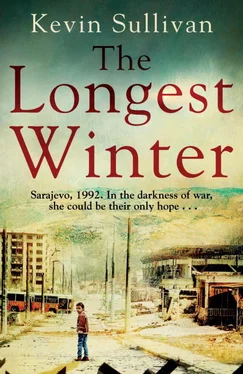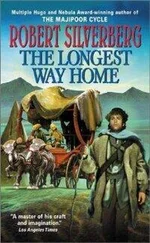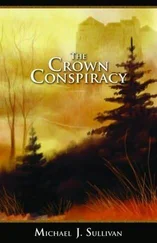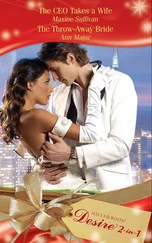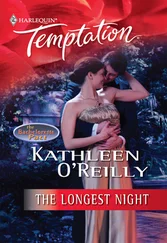‘What did you study?’ She expected him to say philosophy, or literature or languages – something in line with his rather bohemian appearance.
‘Accountancy.’ He smiled. ‘I’m a tax specialist. Taxes are not a strong suit with the people in these parts. We believe they are best avoided! But then the war started. So now I’m a taxi driver. I interpret a little, too, and I do some reporting – I was a reporter on our university paper.’
He stubbed out his cigarette. ‘Tell me, Doctor, what made you come here?’
‘I was asked,’ she said, knowing this was an unsatisfactory response, but entirely unable to find the words for a reply that would have been more truthful. ‘Look, just call me Terry,’ she said, without understanding why she suddenly felt impelled to dispense with formality.
She stood up, slipped the cigarettes into her trouser pocket, put on her coat and picked up her holdall. Zlatko led the way out of the restaurant.
The car had no windows; the window frames were covered with opaque plastic. The cover of the boot was missing. ‘Damaged by mortar,’ Zlatko said. Two bands about five inches broad had been cut into the tarpaulin where the windscreen used to be. These bands were covered with clear plastic, allowing driver and passenger to see where they were going.
‘Is this part dangerous?’ Terry asked, peering ahead at the piece of waste ground in front of the hotel, where she had been shot at the previous afternoon. Perhaps she wanted him to tell her it was the most dangerous place in the city – then she would have experienced the worst. He revved the engine, engaged first gear and swung the car round onto the pavement in a sharp U-turn.
She thought he wasn’t going to answer, which would have made her feel awkward, but he said, ‘It’s all dangerous, Terry. This part a little more than the next part, a little less than the part after that.’
She looked for the seatbelt, but there wasn’t one. He drove very fast.
At the main road they turned left, moving in the opposite direction from the State Hospital towards the west. The road was narrow. On either side, people dragged sledges piled with firewood and plastic water containers. The pedestrians wore dark trenchcoats, woollen hats, scarves wrapped around their necks and faces. There were old women and small children among them.
On either side of the road she saw people cutting down trees.
From time to time the thin traffic built up behind a UN aid convoy escorted by APCs, and they had to slow down.
‘That’s the TV Centre,’ Zlatko told her as they passed a giant grey concrete building. It would have looked ugly even if it hadn’t been pockmarked with shell holes. Parts of the discoloured concrete facade were covered by snow and ice, obscuring the totality of its ugliness.
‘Coming up,’ Zlatko went on, ‘is the PTT, where the UN headquarters are.’
He spoke like a tour guide.
The PTT was a flimsy glass and cement structure, just as ugly, but with more windows than the TV Centre. The roof had an assortment of antennae and satellite dishes. There were sandbags all around the building and Terry saw blue helmets behind little fortified emplacements, like guards on a medieval battlement. Across the main entrance there was a barricade of coiled razor wire.
Near the PTT was a guard post manned by government troops. Zlatko stopped the car, opened the door and shouted something. Terry could see black army boots in the snow, and part of a brazier, and she smelled smoke from the fire. She couldn’t see who Zlatko was talking to, but he was shouting, his whole manner different from before, and whoever he was shouting at shouted back at him.
When he got back into the car and closed the door he said, ‘We are OK to continue.’
Zlatko swung the car round a barricade and they started along a narrower road completely devoid of cars. This continued for half a mile, after which they entered a derelict factory district. There were long sheds with corrugated iron roofs, open spaces where the land was unused and street lamps defining roads with no buildings on either side. There were abandoned cars and trucks everywhere, some of them overturned, the factories fire-blackened and the walls and roofs with shell holes. The car moved along an uneven track across snow.
Terry felt sick.
‘The Rebels are on our right,’ Zlatko said. He could see that Terry was scared. He was scared too.
When they got to the end of the track there was another guard post. A soldier in uniform came out of a low shed and walked towards them.
‘We should get out here,’ Zlatko said. He took a book from the dashboard, a black diary in which he’d put a letter. He opened the door and left the car.
Two more soldiers emerged from the shed. The first soldier took the letter from Zlatko.
‘It’s from Jurić,’ Zlatko explained to Terry. ‘It authorises us to enter the area.’
He showed the soldier his identity card. The soldier was an officious-looking little man, with a round face, unshaven. ‘She’s come from London,’ Zlatko told him.
‘Give me your passport,’ Zlatko said to Terry. He kept his eyes on the soldier.
Terry opened her mouth to speak, but she had nothing to say. She had committed a grotesque oversight.
Finally, Zlatko looked at her. ‘What’s the matter?’
‘I gave my passport to the hotel receptionist yesterday and I forgot to take it back.’ She glanced at him, shamefaced.
The officious soldier stretched out a chubby hand and barked, ‘Passport.’
‘Have you got anything else?’ Zlatko asked.
They watched her open her bag. At first, she couldn’t find her wallet. When she found it at last she extracted her card from the Medical Action Group. She held the acrylic bag in one hand and the card in the other.
The soldier took the card and started to shake his head. Zlatko spoke to him, very calmly, but insistently. The man walked back towards the hut, studying the card.
‘I’m sorry,’ she whispered to Zlatko.
He didn’t say anything and she felt like a fool. They waited until the soldier came back. He returned Zlatko’s identity card and then Jurić’s letter and finally, after a pause in which he seemed to be making up his mind, Terry’s card.
He shrugged. ‘You go in at your own risk.’
‘What did he say?’ she asked when they were back in the car. Zlatko told her. She nodded and sat back in her seat and looked ahead.
The soldiers moved a steel barrier from the road, and Terry and Zlatko drove through. There was fresh snow on the track and Zlatko couldn’t see the potholes. The car went straight into one, deep enough to bring the bottom of the vehicle into contact with the ground. There was a loud scraping sound and then they bounced out of the hole again.
‘Do you know the road?’ she asked.
‘I only came this way once, before the war,’ he said, looking carefully ahead. ‘I hope I remember it well.’
When Milena was ten her mother left Foča and never returned. Milena came back from school one afternoon and found two men in the house and her mother gone. She had never seen these men before, yet she recognised their oiled hair and slick clothes and leather shoes; she recognised the way they lounged in the front room as though it was their front room.
‘Where’s my mama?’ she asked, looking from one hard face to the other.
‘Who are you?’
‘I’m Milena,’ she said, screwing up her face and trying to screw up her courage too, standing on one leg then the other, glancing through the window and back at the door.
‘Your mama’s gone away,’ the other man said. He spoke as though her mother’s absence was Milena’s fault.
Читать дальше
